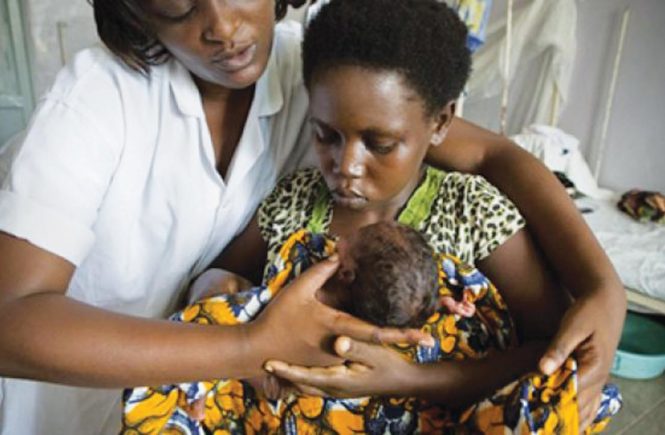September 20 will never be just another day to Deyi. In one moment, his joy was turned to ashes. He held his child in one hand, and held his wife’s hand in the other, hoping she’ll hold on to him and try to breathe while the doctors were trying to resuscitate her. This was her third baby in in three years and he had experienced the most prolonged labor. Mixed emotions; joy and fear filled Deyi’s heart until she finally gave up. One more baby in the world without the nurturing care of a mother.
This is story of about 350,000 women who die every year of complications that can be preventable and developing countries like Nigeria have the highest rate of these deaths. Nigeria is in fact the second highest contributor to maternal mortality in the world. As at 2015, the North Eastern region of the country had a maternal mortality rate of 1,549 per 100,000 live births and the South West had a rate of 165 per 100,000 live births.
A huge disparity on both extremes which could be tied to a lot of factors that can be direct, indirect or totally unrelated to the pregnancy. Direct factors arise from complications such as obstructed labor, hemorrhage or induced abortion. The indirect factors can arise from medical conditions spurred by the pregnancy such as hypertension or heart disease. The unrelated factors include events like motor accidents or electrocution. Other social and health related factors ranging from religion and traditional belief systems that encourage larger families, to lack of trained personnel or shortage of facilities. All these can contribute to the death of a woman while pregnant or within 42 weeks of termination of pregnancy.
Nigeria’s increasing population will proliferate fertility rate from the current 55% and this could imply increase danger for women who get pregnant and since most of these pregnancies are unintended, many die in abortions. This will increase with population explosion and it is advised that third world countries begin to take measure to control the increase in their population.
The single most important solution to this problem is contraception, better known as family planning. First, we have to educate communities on the importance of family planning and how they can improve the survival chances of the mother and the state of our communities. It is suggested that in communities where deeply held religious believes frown at family planning, child spacing can be suggested to them. Contraception and access to it has increased over the years but there’s room for improvement. It is widely believed based on empirical information, that family planning has important benefits for not only maternal health, but child health as well.
More so, countries with poor health infrastructure like Nigeria should have Family planning as the first element of primary health.
We also need to decrease the culture of shame. Many women will not go to pharmacies to purchase contraceptives because of the fear that they may be seen as wayward. Some may not care about public opinion but many others too. Even in clinics where proper advice and counsel should be given regarding the use of contraceptives, health care givers do not necessarily play this role without being judgmental.
Many will rather purchase it discreetly and there aren’t enough discrete services to go round. Much as we believe contraception will solve the problem, the administration of the drugs should also be checked and properly managed so those using it or the drug itself will not be abused. Many unwanted pregnancies would have been avoided only if contraceptives were administered.
Lastly, whenever we talk about contraception, the flashlight is thrown on women but contraception is not for women alone. There are contraceptives for men and they can be enlightened about it too, so the burden is reduced for the woman.





